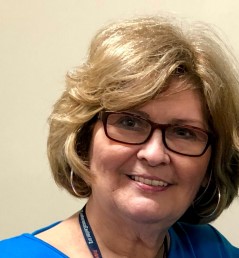Elizabeth Goddard

So much has changed in the publishing world since I first started writing for publication in 2001. I distinguish writing for publication from simply writing for fun because, for me, there truly is a different mindset when writing with the hope that an editor would acquire my manuscript or that an agent would sign me. That mentality allowed me to take writing seriously. Sure, I could have fun with it. If I love what I’m writing, that’s going to shine through. But my goal to write something I could be proud of, something professional and publishable, meant I had to learn everything about how to improve my writing.
With the tremendous increase in the need for written content, the number of writers has also increased and hence the competition. In my opinion, there’s never been a better time to be a writer. That said, the bar is even higher. If I want to stay relevant as a novelist, even now after fifty novels, I must continue to educate myself, improve my skills and learn new techniques.
Aspiring writers often believe what they’ve written is amazing. I’m guilty, so I’m not pointing fingers. It isn’t easy to truly see how your writing compares or fully understand how much better you need to be before you start sending your work out.
Ask any multi-published experienced writer about those first attempts—those manuscripts that never sold that are now stuck in a drawer. Often, you’ll be told the writing is awful and the story would need to be rewritten. Or in some cases the novel did sell, and that writer will tell you she cringes that anyone read it. I’m both of those writers. I have manuscripts that should never see the light of day, and I have works published that make me cringe. I’ve been able to get rights reverted to most of my first novels and I plan to rewrite them, using my experience and the well-developed skills to create a much better book. Now, years later, I can easily see how they can be improved.
How does any of this help a new writer? Understanding that writing is a journey is key. Getting from point A to point B requires travel time—your mileage may vary.
The idea is that you should never give up. You’ll get there one day. Good writing, great writing—for most of us—doesn’t happen overnight. To give an example . . . You can’t expect to take one guitar lesson this week and play at Carnegie Hall next weekend. To get to Carnegie Hall, you’ll need to practice your guitar several hours every day, while learning new techniques and excelling at them. Getting there might even take years. While gaining exceptional skills playing the guitar, you’ll also need to develop contacts who can help you get where you want to go professionally.
But everyone must start somewhere. The three basics to improving your writing are:
1)
You’ve probably already heard this writing advice—read, read, read. It’s true and it bears repeating here. There’s no getting around reading wide and reading often if you want to excel at the writing craft. At one conference where I was a mentor, I had breakfast with an aspiring novelist who wasn’t sure what she wanted to write. I asked her what she enjoyed reading. Her answer? She hated to read. I admit I was so surprised that I wasn’t sure how to respond. Let me put it this way, you can’t be a great writer if you don’t even like to read. In the case that you want to be a good writer, or a better writer, then you’ll want to read more. Read as much as you can. There have been seasons during my writing career that I found it hard to find time to read, but I’ve remedied that. Every evening I set aside time—thirty minutes or an hour--and I read for pleasure and usually that’s in my genre because I love to read what I love to write. I read my favorite authors along with new-to-me authors. Reading also increases your vocabulary, stimulates your brain, improves your memory, focus and concentration. I could go on. But most important to an aspiring writer—reading intuitively makes you a better writer.
Let’s say you want to write romantic suspense novels. Reading those novels will give you the sense of pacing and romance you’ll want to put into you own novels, and you can do that without too much thought because it will come naturally to you.



























